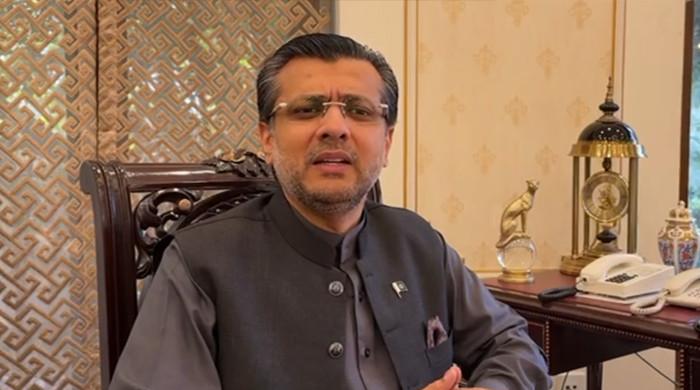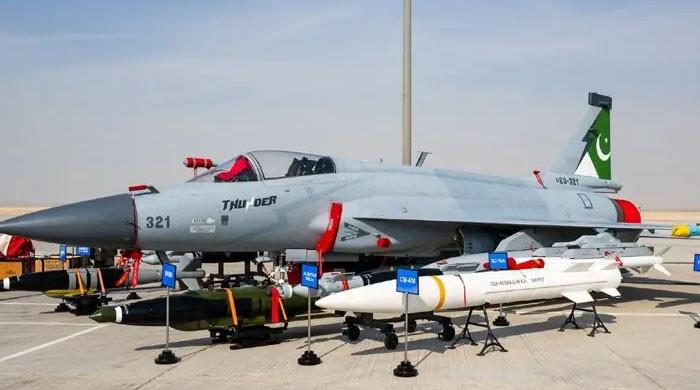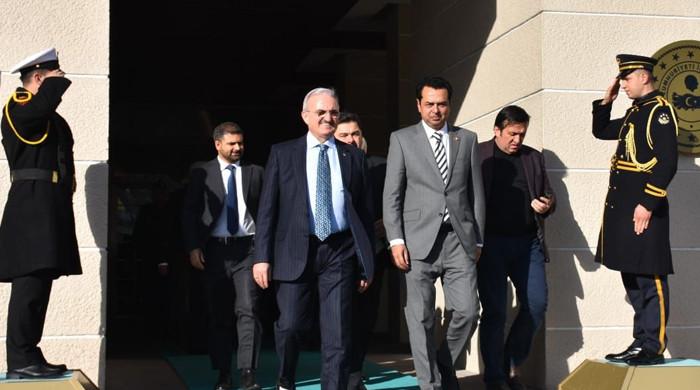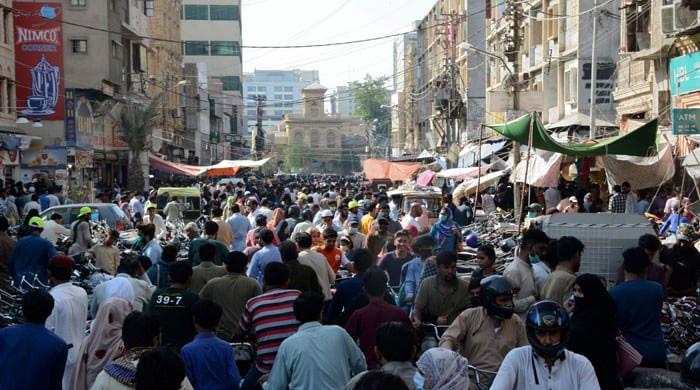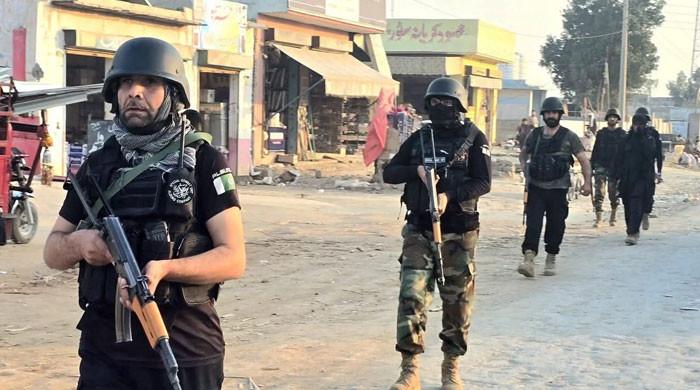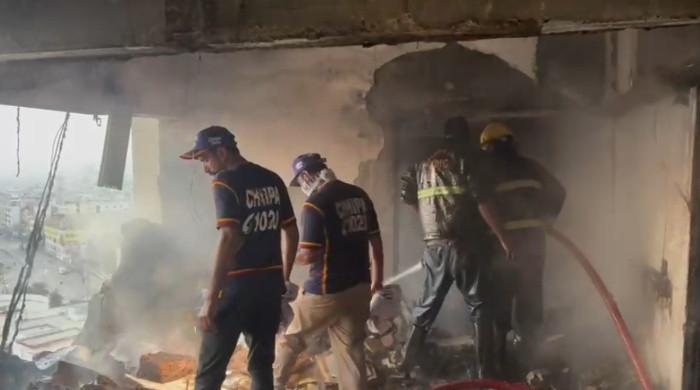Amal Umer’s parents recall horrifying events that led to her death
10-year-old Amal was hit by a bullet from an AK-47, which was fired by a policeman attempting to kill a bandit
September 17, 2018
KARACHI: On August 13, 10-year-old Amal Umer lost her life after being hit by a stray bullet during a police encounter in Karachi’s Akhtar Colony area.
The bullet that hit Amal was from an AK-47 and was fired by a policeman attempting to kill a bandit, who had robbed the 10-year-old's family a few minutes earlier as they waited at a traffic light to attend a concert on the eve of Independence Day.
"We were travelling from Korangi Road towards FTC when a man approached us at the signal and asked us to hand over everything," Amal’s father, Umer, recalled while speaking on Geo Pakistan.
“There was a lot of traffic at the signal at the time. The man took my wife’s phone and bag and then told us to roll up the windows and left,” he continued. "As soon as I started the car, we heard a gunshot and a bullet suddenly hit our windshield."
Naturally, Umer and his wife, Beenish, turned back to check up on their two daughters sitting in the backseat, who they had asked to lie down when they heard the gunshots.
"When I turned, I saw Amal lying in a pool of blood and my other daughter clutching my seat," Umer said.
Panicked, Umer tried to rush to nearby National Medical Centre (NMC). "I rolled down my window and asked people to clear the path. We did not know where the bullet had hit, as her hair was in her face and her eyes were open but there was a lot of blood,” he said.
Luckily, they reached the hospital in three to five minutes. But, according to Umer, instead of being given immediate treatment, the hospital staff intubated Amal and attached an ambu bag and asked them to take her to Jinnah hospital as she "did not have much time” and this was a medico-legal case.
But the hospital initially did not even help them arrange an ambulance, Beenish said.
After much insistence, someone from the hospital called the Aman Foundation, who refused to send an ambulance till "arrangements were made" at Jinnah Hospital, she further said. "When we asked if we could take the ambu bag along, the NMC staff refused."
By the time an ambulance reached them and they took their daughter to Jinnah Hospital it was too late. Amal had lost the battle for her life by then.
Aman Ambulance CEO Shazina Masood, while speaking to Geo News, said that as per the standard operating protocol the ambulance service asks some questions, assessing the situation and ascertaining the type of ambulance to send, based on the information obtained.
“We want the person to be calm, so we get the information we are looking for and assess which ambulance and crew to send,” said Shazina Masood.
“We got three type of ambulances, in case of Amal, she needed to be placed on a ventilator as she was bleeding profusely and her saturation level was near to 50 per cent. So, we positioned a special ambulance for her, but if there is no hospital ready with a ventilator then an ambulance would be useless as we don’t have a ventilator,” she further said.
The CEO said that the ambulance service received the first call at 10:32 pm, for a duration of 4.5 minutes and returned the call at 10.42pm and the ambulance reached at 10.52pm.
“We just have 60 ambulances to cater to the city and our average response time is from 12 to 14 minutes,” said CEO Aman ambulance service.
Sources at NMC conflicted the parent's version and claimed that the girl had passed away when she was brought to the hospital.
But Beenish insisted, "My daughter was breathing till we were at NMC."
Deputy Inspector General (DIG) South Javed Alam Odho, who was also present on Geo Pakistan was questioned regarding policemen firing from an AK-47 in a crowded area. “We are aware this wasn’t a routine case,” he said.
"As per the inquiry report, two policemen deployed in the area were informed about a robbery at a close distance following which both of them arrived at the site and took action," the DIG South said.
“In my opinion, this was wrong,” Odho added.
When asked why the policemen were carrying AK-47, Kalashnikov in a public area which was crowded due to Independence Day celebrations, the DIG responded, “I am against this.”
“After the Afghan war in 1979, we received a lot of leftover weapons and this was one of them which is being used against criminals. At that time, it was decided the police should be given weapons such as AK-47, and they are being used till now,” he added.
Responding to a question regarding a medico-legal case being registered, the officer said, “It is important in case an injury or death occurs. If a medico-legal case is not registered, an investigation cannot take place as we will not have the evidence to present in court.”
He asserted, “It took us time to acquire CCTV footage, however, the doctor which conducted the girl’s postmortem was adamant that the injury was not from a big weapon.” On August 14, Jinnah Hospital MLO Dr Zakia said the postmortem report showed the girl sustained a bullet in the head from a small weapon.
Amal's parents criticised the police and said, "Just because you wear a uniform it does not mean no one can hold you accountable for anything."




